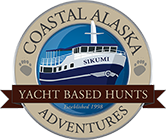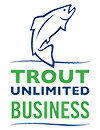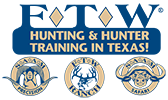There are a few types of guides in Alaska, professional, semi-pro and hobby. Anybody can become a guide, and hunting is easy. It’s all the details that make a hunt successful. Any level of guide can get lucky and harvest some big trophies, but there is a lot more that goes into it than that. Does your guide have good equipment? Have they planned for your hunt? Do they scout? Do they have top-notch employees or kids hired off the street? These are some things to think about to insure you have a successful trip.Here is a brief summary of how we view each:
Professional Alaska Hunting Guides
We are the guides who eat, sleep and breathe our business. Guiding is typically our sole source of income, and we pay attention to every detail. If we are not actively involved in guiding a hunt, or it is the off-season, we are working to insure that the next season is perfect. No detail is spared, and our clients are number one. We dump capital into our businesses, constantly upgrading equipment, areas and other considerations to improve our operations. We strive for the highest levels of customer service. We take you to the best areas we can, as remote as possible, and strive to maintain healthy hunting areas. We help set the standards of the industry, from trade shows to activity on all levels of insuring our way of life. We work with the governing agencies such as US Fish and Wildlife and Alaska Department of Fish and Game to help promote conservation and hunting rights. Probably less than 10% of the guides in Alaska fall into this category. You can typically pick them out by the level of professionalism, their equipment, advertising, staff, etc. They will be booked out years in advance, and expect their prices to be the highest, but this is a prime example of getting what you pay for. You should receive much more than a hunt, you are paying for the best.
Semi-pro Alaska Hunting Guides
These are the guides who love what they do, and may be fantastic hunters and guides, but have very little business sense. Many of them think they are pros, but don’t realize how much more it takes to reach that level of service. It is probably their sole source of income, but usually supplemented by other activities such as commercial fishing or other outdoor-based jobs. While good at guiding they will usually put very little effort into the business or their equipment. They advertise and attend trade shows, they will be hustling that years hunts at a lower price than the pros (usually just low enough to get bookings). They usually offer a good service, with very little extras. They will blow the dust off their equipment the day before the hunt and grab some groceries on the way out of town. They seldom have a plan b if your hunt goes wrong, as they have not been planning. Most will be good, hardworking Alaskans who dreamed of being a guide but did not realize how much work was involved other than hunting. In fact, this is why they are usually so poorly prepared for anything other than the hunting aspect of the trip. Food, equipment, logistics and other parts that can make a hunt the trip of a lifetime are often neglected, as they do not want it to be a full time job, they expected more glamour. Many semi pros come and go, they try it for a while, peak out and fade away as the reputation slides or they mismanage their businesses to the point of failure.
Hobby Alaska Hunting Guides
Hobby guides are just that. They usually have a full time source of employment outside of guiding, but either love to hunt so take people out on their time off, or need some extra money and think guiding is the key. Very little thought or effort is put into the business, if you could call it that. Equipment is probably their personal use gear or leased/chartered. You will probably hunt in their backyards, close to town, or areas easy to access. They ride on the coat tails of the professional guides, picking up hunters here and there by offering discount prices for a mediocre experience. Advertising is rare, most use booking agents (beware when a deal seems to good to be true from an agent). Hobby guides show that anyone can be good at hunting, and even guiding. They can provide a good service, but don’t expect a lot of bang for your buck, you get what you pay for!
Non-Alaskan Hunting Guides
The final category, and pretty self-explanatory. Most of these guides came to Alaska for a dream, and have worked here long enough to get a foothold. This said, some turn into pros, but most have no real idea of what’s going on. Yes, they can figure out how to hunt and be successful, but it’s the little nuances that they usually miss. Locals usually despise them, as they have no regard for the resident hunters or traditions. They often end up in trouble with weather or other dangers as it can take a lifetime to understand Alaska. They are the first to fold up shop if the money slows or the animals get tough to find (usually their fault as they typically overharvest an area). Money seems to be the drive, as they have no roots in Alaska and/or concern about the longevity. They are there to Harvest, both cash and animals. To an Alaskan, you’re an outsider if you have not been here at least 25 years. This said, there are some good ones. But I have yet to meet one.



